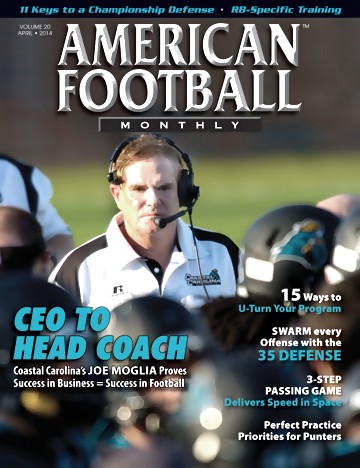Article CategoriesAFM Magazine
|
U-TURN How Southern Virginia University went from 3-8 to 8-2.by: DeLane FitzgeraldHead Coach • Southern Virginia University © More from this issue On February 9th 2009, I agreed to become the head football coach at Southern Virginia University. At the time, the SVU football program faced several obstacles both on and off the field. They included a low team grade point average, discipline problems, and recruitment and retention problems. In addition, they had embraced a mediocre mentality from a losing record. When I accepted the head coaching job, SVU had only had one winning season in school history and had averaged just two wins per season over the history of the program. We had to recruit better players and coach better, but most of all we had to build a winning mentality within our football program. Five seasons later, our team finished first in the United States Collegiate Athletic Association and we had the best record in the nation of NCAA Division D-II....The full article can only be seen by subscribers.
|
|
|||||||
| HOME |
MAGAZINE |
SUBSCRIBE | ONLINE COLUMNISTS | COACHING VIDEOS |
Copyright 2026, AmericanFootballMonthly.com
All Rights Reserved





